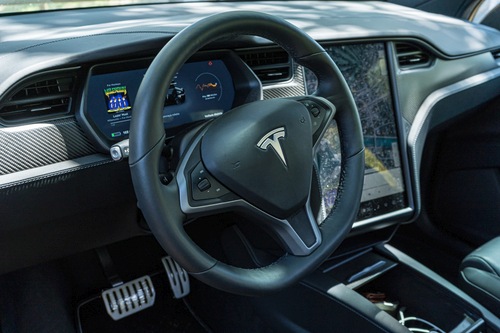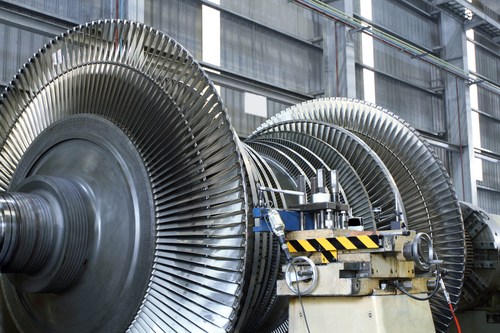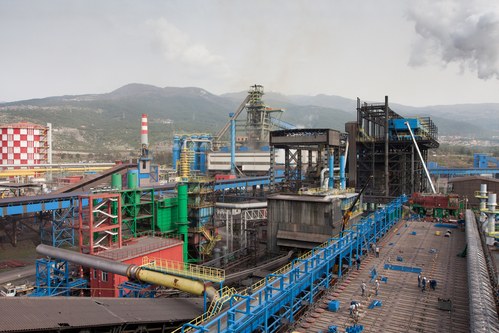Korean new car sales in May: Model Y beats E-Class
The number of new Tesla vehicles registered in Korea reached 3,461 units in May. Of these, 3,328 were Tesla’s Model Y, which took the top spot for imported vehicles for the first time. The Mercedes-Benz E-Class landed in second place with 2,387 vehicles sold in May. The vehicles compete for the Korean automotive market, for which KC certification may be required for many components. This serves to establish conformity with Korean K standards.
A total of 7,690 Mercedes-Benz cars were newly registered in South Korea in May. This means that the German luxury-class manufacturer retained first place for the fifth month in a row. BMW (6,257), Volkswagen (1,358), Volvo (1,264), Jeep (1,110), Mini (1,095), Lexus (1,007), Porsche (847) and Ford (655) are in the other places.
The number of registered vehicles, excluding Tesla, increased 3.5 percent from the same month last year to a total of 24,080 in May. A sum of 121,566 new vehicles were registered in the first five months of 2021, an increase of 20.5 percent from the same period last year.
In another press release from Business Korea, a survey identified the most popular brands for vehicles imported into South Korea. The survey, conducted by Business Korea and the Korea Corporate Reputation Research Institute, looked at the reputations of 25 car brands that import vehicles into South Korea. Rankings were compiled via analysis of Big Data records within a month totaling some 33 million entries. In the month of July, Mercedes-Benz, BMW and Audi took the top three spots, followed by Chevrolet, Porsche and Volkswagen. At the bottom of the popularity scale were Chrysler, Nissan and Mini. A study leader said the ranking is related to the brands’ reputations and the behavior of domestic consumers. Among other factors, the ranking takes into account how often Internet users mention the brands and how many articles or posts have been created about them.
Is your company active in the automotive industry and has business relations with South Korea or plans to do so? Many products that are imported into South Korea have to be tested and certified in advance. MPR International GmbH recommends itself as a partner for your Korea certification. We gladly check for you without obligation whether your products are subject to certification and prepare an attractive offer for you.
If you need assistance or have any questions regarding Korean certifications like KC, KC EMC, KCs or KCs for explosion safety products, feel free to contact us any time.
Tel.: +49-69-2713769259
Email: info@korea-certification.com
Urgent questions?
Please do not hesitate to contact us via chat. You will find the chat window at the bottom right of each page (if this is not visible, please check your browser settings).
For more information you can download our free brochure “Korea Certification Made Easy – The Booklet“.
Doosan Heavy Industries & Construction pushes ahead with hydrogen gas turbine development
South Korea’s Doosan Heavy Industries & Construction (DHIC) is accelerating the development of environmentally friendly gas turbines that run on hydrogen. DHIC announced June 3 that it has signed an agreement with three partners to promote hydrogen turbine demonstration plants. In addition to Doosan, the parties are the Ulsan Municipal Government, Korea East-West Power and SK Gas. They will work together on a project to convert existing gas turbines at the Ulsan Combined Thermal Power Plant into hydrogen-fueled turbines.
The conversion and operation will require increased importation of relevant components and machinery, which may generally fall under the certification requirement for KC Mark certification or KC EMC certification in Korea. When completed, the plant will have a capacity of 270 MW, with commissioning planned for 2027. The gas turbines in Ulsan have been in operation for more than 25 years. The planned project is considered the first of its kind in Korea.
A day earlier, on June 2, DHIC signed an agreement with Korea Midland Power. Content of the agreement is the support of Korea Midland Power’s climate goals to be CO2 neutral by 2050 as well as to build up a domestic industry for hydrogen gas turbines. Korea Midland Power would like to use DHIC’s hybrid burner systems and hydrogen gas turbines, which the company has developed with the help of the government. In return, DHIC will develop the relevant technology for the turbines and prepare for series production of the parts.
Power plants that use hydrogen as fuel emit fewer pollutants than conventional plants that run on natural gas. The Korean Institute of Machinery and Materials calculated that if 30 percent of all power plants currently fueled by natural gas used hydrogen, CO2 emissions could be reduced by 10.4 percent. The institute also pointed out that no CO₂ is produced when hydrogen is burned. Industry experts predict the hydrogen gas turbine market will grow to as much as $35 billion by 2030.
DHIC has become the fifth company in the world to develop its own large-scale gas turbine power generation plants since 2019. It has also been working on hydrogen gas turbines since May 2020. The company participated in a nationwide project with the Korean Institute of Machinery and Materials to develop a high-efficiency hydrogen hybrid gas burner for power plants. Hybrid in this case stands for the use of different gases as fuel for the gas turbines or power plants.
South Korea is considered one of the most important and innovative industrial nations in the world. In order to gain market access to this highly technological country, products imported into South Korea must be tested and certified. The KC mark or KC certificate is roughly equivalent to the European CE mark and applies to 730 different products. MPR International GmbH has solid experience in Korea certification and competent local partners. We gladly advise you without obligation about the scope and procedure of a Korea certification.
If you need assistance or have any questions regarding Korean certifications like KC, KC EMC, KCs or KCs for explosion safety products, feel free to contact us any time.
Tel.: +49-69-2713769259
Email: info@korea-certification.com
Urgent questions?
Please do not hesitate to contact us via chat. You will find the chat window at the bottom right of each page (if this is not visible, please check your browser settings).
For more information you can download our free brochure “Korea Certification Made Easy – The Booklet“.
Posco lays foundation stone for South Korea’s first lithium plant
A groundbreaking ceremony was recently held in Gwangyang, Jeonnam Province, for the first lithium production facility in South Korea. For Posco, this step is another milestone in creating its own supply chain for batteries manufactured in South Korea, having already completed a factory for the production of cathodes, also in Gwangyang. To ensure the importation into Korea, electric vehicle components, which include batteries, among others, must undergo certification for the KC mark or KC certificate.
Korean steel giant Posco said at the groundbreaking ceremony in late May that the factory will be able to produce about 43,000 metric tons of lithium hydroxide annually at full capacity, a key raw material for making vehicle batteries. The company is investing $680.4 million to build the lithium plant, which covers 19 hectares and is located within the Yulchon Industrial Complex in Gwangyang, 418 km south of Seoul. Construction is scheduled to end in 2023. Posco said the amount of lithium that will be produced annually at the new factory is enough for the main drive batteries of about 1 million electric cars.
When completed, the factory will be the first lithium production facility in South Korea and will play an important role in making the country independent of lithium imports, which currently stand at 100 percent. The lithium hydroxide produced in the future will be an important core material for the cathodes of vehicle batteries with a nickel content of 80 percent or higher. The industry has recently become aware of the new material, which, compared to the current lithium carbonate, can significantly increase battery capacity and thus the range of electric cars.
Plans for the lithium plant in Gwangyang were approved by the supervisory board in April, and a new company called Posco Lithium Solutions was established. This is to operate the new plant and extract lithium hydroxide from ores supplied by a partner in Pilbara, Western Australia.
If you need assistance or have any questions regarding Korean certifications like KC, KC EMC, KCs or KCs for explosion safety products, feel free to contact us any time. Our experts are always available to answer any questions without obligation.
Tel.: +49-69-2713769259
Email: info@korea-certification.com
Urgent questions?
Please do not hesitate to contact us via chat. You will find the chat window at the bottom right of each page (if this is not visible, please check your browser settings).
For more information you can download our free brochure “Korea Certification Made Easy – The Booklet“.
South Korea’s Lotte Chemical ventures into green hydrogen business
Lotte Group has decided to enter hydrogen production as a new business line and growth market. At the same time, this is expected to benefit the Group’s sustainability goals. Lotte plans to import hydrogen in the form of ammonia from overseas and distribute it in Korea. The company also plans to supply hydrogen produced as a byproduct in petrochemical processes to gas stations. Lotte Precision Chemical, a subsidiary of Lotte Chemical, will import the sustainably produced ammonia from overseas and produce hydrogen from it for sale in Korea, said a senior Lotte Group executive. Importation of such chemicals and their containers often requires prior KC certification.
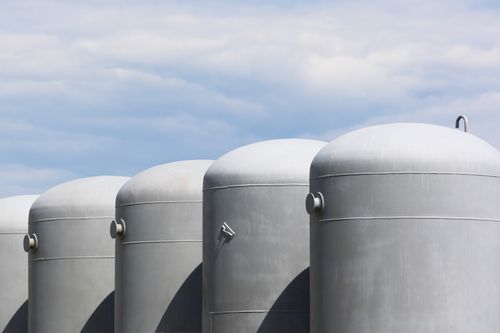
Ammonia has the chemical formula NH3 and a large amount of hydrogen (H) can be produced by splitting off the nitrogen (N). From its existing ammonia business, Lotte Precision Chemicals was able to generate sales of about $370 million, or 30 percent of total sales, last year in 2020. Ammonia as a feedstock for hydrogen production is particularly popular because of its ease of transportation. Unlike liquid hydrogen, which must be cooled at minus 253 degrees during transport, minus 33 degrees is already sufficient for ammonia. In addition, the density of ammonia is 1.5 times higher than that of hydrogen, which saves further transport costs.
For the new line of business, Lotte is working with South Korean energy companies to sell the hydrogen at filling stations. Plans call for selling the approximately 10,000 metric tons per year of hydrogen produced as a byproduct at Lotte’s Seosan Daesan plant as fuel in the nearby metropolitan area. Lotte also plans to add more hydrogen liquefaction plants at its facilities in Korea and overseas, as well as expand capacity at the Daesan plant.
South Korea is considered one of the most important and innovative industrial nations in the world. To gain market access to this highly technological country, products imported into South Korea must be tested and certified. The KC mark or KC certificate is roughly equivalent to the European CE mark and applies to 730 different products. MPR International GmbH has solid experience in Korea certification and competent local partners. We will be pleased to advise you without obligation about the scope and procedure of a Korea certification.
If you need assistance or have any questions regarding Korean certifications like KC, KC EMC, KCs or KCs for explosion safety products, feel free to contact us any time.
Tel.: +49-69-2713769259
Email: info@korea-certification.com
Urgent questions?
Please do not hesitate to contact us via chat. You will find the chat window at the bottom right of each page (if this is not visible, please check your browser settings).
For more information you can download our free brochure “Korea Certification Made Easy – The Booklet“.
Hyundai Motor awards car semiconductor production to Korean manufacturers
Hyundai Motor Group has disclosed some of its specifications for semiconductors and computer chips and shared them with Korean chipmakers. Analysts believe that Hyundai is taking this step to make itself less dependent on foreign chipmakers or suppliers. In addition, the company hopes to eliminate the current supply problems of computer chips by cooperating with Korean chip manufacturers. The distribution of microchips, and for other electronics, is regulated by KC certifications (Korea Certification) in South Korea, with the purpose to ensure the quality and safety of products.
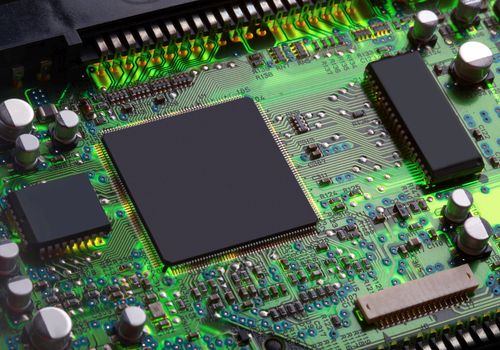
Hyundai Motor Co. and Hyundai Mobis subsidiaries had recently shared some specifications for auto chips and semiconductors with potential South Korean manufacturers. The eight types disclosed include analog semiconductors including microcontroller controllers (MCUs), ICs for screen controls and power management ICs (PMICs). For the MCUs, it is known that they are 32-bit chips based on a 65 nm process.
Currently, Hyundai imports the vast majority of its chips and semiconductors from abroad. Suppliers include Infineon from Germany, ST Microelectronics from Switzerland, NXP from the Netherlands, and Texas Instruments from the United States.
South Korea is considered one of the most important and innovative industrial nations in the world. Many products imported to South Korea have to be tested and certified in advance. MPR International GmbH recommends itself as a partner for your Korea certification. We will be pleased to check for you, without obligation, whether your products are subject to certification and to prepare an attractive offer for you.
If you need assistance or have any questions regarding Korean certifications like KC, KCC certification, KCs or KCs for explosion safety products, feel free to contact us any time.
Tel.: +49-69-2713769259
Email: info@korea-certification.com
Urgent questions?
Please do not hesitate to contact us via chat. You will find the chat window at the bottom right of each page (if this is not visible, please check your browser settings).
For more information you can download our free brochure “Korea Certification Made Easy – The Booklet“.



